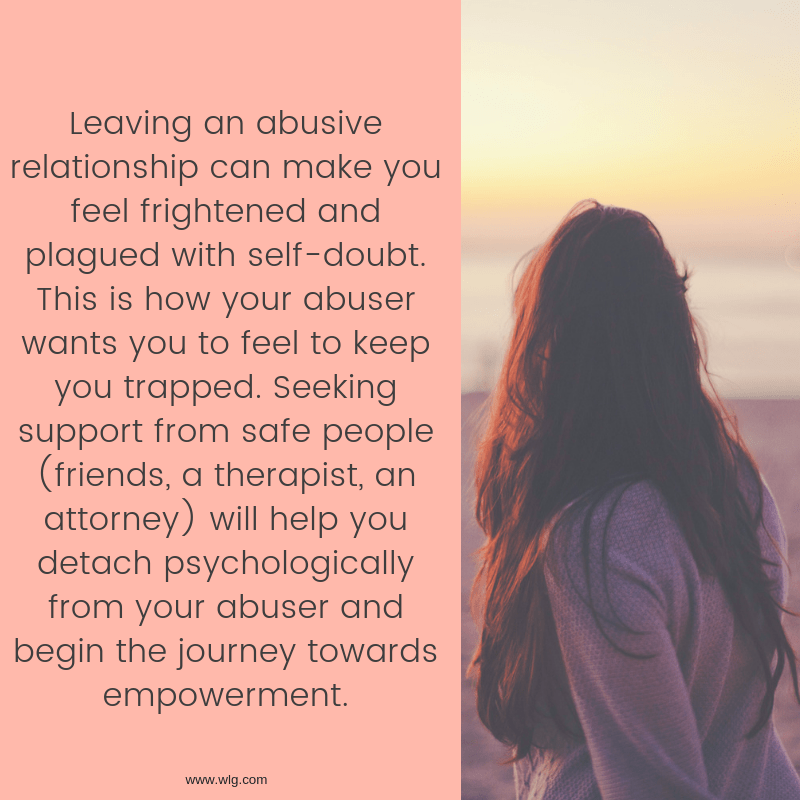Divorcing An Abuser: 5 Steps to Getting Out Safely

If you’re married to an abusive spouse, you’ve probably been conditioned to feel trapped and helpless. You may be financially dependent and wonder how you’ll support yourself and your children. No one should tolerate abuse, especially when children are involved. When divorcing an abuser, it’s critical that you plan your exit wisely — especially if your spouse has threatened you with physical harm to manipulate you into staying.
As scared and overwhelmed as you may feel right now, you and your children are likely to face greater harm if you stay. Here are 5 steps to help you get out of your abusive marriage safely:
- Contact a Domestic Violence Hotline. DV counselors are trained to help you formulate an exit plan. They’ll tell you what items you need (for instance, a “to-go” bag with clothing, medication, important papers, and an extra set of car keys in case you need to get out quickly), how to gather support, and where to go when you leave. Speaking with a counselor can help you shift from feeling overwhelmed to feeling organized and empowered. Call the 24-hour New Jersey Domestic Violence Hotline at: 1-800-572-SAFE (1-800-572-7233) or National DV Hotline: 1-800-799-7233.
- Consult with a family law attorney. A family law attorney can help you file a restraining order to keep you and your children safe. He or she will also help you prepare the necessary documents to request spousal support, child support, and legal fees. Look for family lawyers that offer a free consultation.
- Collect and record evidence. Start keeping a journal to record evidence of abuse. This will help your attorney prepare your case. Write down dates of abusive incidents and take pictures of bruises and other bodily injuries. Keep this evidence log in a safe place, such as your to-go bag.
- Protect yourself during the planning stage. It’s vital that you keep your plans a secret from your abuser. Don’t use your phone or computer to make calls or do research. Ask a friend or family member if you can make calls on their phone; go to the public library to use a computer. [We have also created a Domestic Violence Safety Plans PDF that you can print out at the library and keep safeguarded at a friend’s house.]
- Prepare your children. You don’t want to tell your children that you’re planning to leave, but you do want to make sure they know what to do in case of an emergency. Present the information as part of basic safety training: call 911, or run to a neighbor’s house.
Leaving an abusive relationship can make you feel frightened, alone, and plagued with self-doubt. These are all things that your abuser wants you to feel to keep you trapped. Seeking support from safe people (friends, a DV counselor, a therapist, an attorney) will help you detach psychologically from your abuser and begin the journey towards empowerment.
Our attorneys can help you with restraining orders, temporary spousal support and child support. You can get out. You can live well with your children and you can stay safe. Call us: (888) 888-0919.


